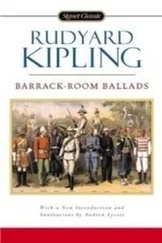Джозеф Киплинг - From Sea to Sea
Здесь есть возможность читать онлайн «Джозеф Киплинг - From Sea to Sea» весь текст электронной книги совершенно бесплатно (целиком полную версию без сокращений). В некоторых случаях можно слушать аудио, скачать через торрент в формате fb2 и присутствует краткое содержание. Год выпуска: 2014, Издательство: epubBooks Classics, Жанр: Биографии и Мемуары, Публицистика, на английском языке. Описание произведения, (предисловие) а так же отзывы посетителей доступны на портале библиотеки ЛибКат.
- Название:From Sea to Sea
- Автор:
- Издательство:epubBooks Classics
- Жанр:
- Год:2014
- ISBN:нет данных
- Рейтинг книги:3 / 5. Голосов: 1
-
Избранное:Добавить в избранное
- Отзывы:
-
Ваша оценка:
- 60
- 1
- 2
- 3
- 4
- 5
From Sea to Sea: краткое содержание, описание и аннотация
Предлагаем к чтению аннотацию, описание, краткое содержание или предисловие (зависит от того, что написал сам автор книги «From Sea to Sea»). Если вы не нашли необходимую информацию о книге — напишите в комментариях, мы постараемся отыскать её.
From Sea to Sea — читать онлайн бесплатно полную книгу (весь текст) целиком
Ниже представлен текст книги, разбитый по страницам. Система сохранения места последней прочитанной страницы, позволяет с удобством читать онлайн бесплатно книгу «From Sea to Sea», без необходимости каждый раз заново искать на чём Вы остановились. Поставьте закладку, и сможете в любой момент перейти на страницу, на которой закончили чтение.
Интервал:
Закладка:
The bucket is tipped into the furnace with a thunderous roar and the slag below pours forth more quickly. "An engine," says Experience, reflectively, "can run over herself so to say. After she's broken up she is made into sleepers for the line. You'll see how she's broken up later." A few paces further on, semi–nude demons are capering over strips of glowing hot iron which are put into a mill as rails and emerge as thin, shapely tie–bars. The natives wear rough sandals and some pretence of aprons, but the greater part of them is "all face." "As I said before," says Experience, "a native's cuteness when he's working on ticket is something startling. Beyond occasionally hanging on to a red–hot bar too long and so letting their pincers be drawn through the mills, these men take precious good care not to go wrong. Our machinery is fenced and guard–railed as much as possible, and these men don't get caught up by the belting. In the first place, they're careful—the father warns the son and so on—and in the second, there's nothing about 'em for the belting to catch on unless the man shoves his hand in. Oh, a native's no fool! He knows that it doesn't do to be foolish when he's dealing with a crane or a driving–wheel. You're looking at all those chopped rails? We make our iron as they blend baccy. We mix up all sorts to get the required quality. Those rails have just been chopped by this tobacco–cutter thing." Experience bends down and sets a vicious–looking, parrot–headed beam to work. There is a quiver—a snap—and a dull smash and a heavy rail is nipped in two like a stick of barley–sugar.
Elsewhere, a bull–nosed hydraulic cutter is rail–cutting as if it enjoyed the fun. In another shed stand the steam–hammers; the unemployed ones murmuring and muttering to themselves, as is the uncanny custom of all steam–souled machinery. Experience, with his hand on a long lever, makes one of the monsters perform: and though Ignorance knows that a man designed and men do continually build steam–hammers, the effect is as though Experience were maddening a chained beast. The massive block slides down the guides, only to pause hungrily an inch above the anvil, or restlessly throb through a foot and a half of space, each motion being controlled by an almost imperceptible handling of the levers. "When these things are newly overhauled, you can regulate your blow to within an eighth of an inch," says Experience. "We had a foreman here once who could work 'em beautifully. He had the touch. One day a visitor, no end of a swell in a tall, white hat, came round the works, and our foreman borrowed the hat and brought the hammer down just enough to press the nap and no more. 'How wonderful!' said the visitor, putting his hand carelessly upon this lever rod here." Experience suits the action to the word and the hammer thunders on the anvil. "Well, you can guess for yourself. Next minute there wasn't enough left of that tall, white hat to make a postage–stamp of. Steam–hammers aren't things to play with. Now we'll go over to the stores … "
Whatever apparent disorder there might have been in the works, the store department is as clean as a new pin, and stupefying in its naval order. Copper plates, bar, angle, and rod iron, duplicate cranks and slide bars, the piston rods of the Bradford Leslie steamer, engine grease, files, and hammer–heads—every conceivable article, from leather laces of beltings to head–lamps, necessary for the due and proper working of a long line, is stocked, stacked, piled, and put away in appropriate compartments. In the midst of it all, neck deep in ledgers and indent forms, stands the many–handed Babu, the steam of the engine whose power extends from Howrah to Ghaziabad.
The Company does everything, and knows everything. The gallant apprentice may be a wild youth with an earnest desire to go occasionally "upon the bend." But three times a week, between 7 and 8 P.M., he must attend the night–school and sit at the feet of M. Bonnaud, who teaches him mechanics and statics so thoroughly that even the awful Government Inspector is pleased. And when there is no night–school the Company will by no means wash its hands of its men out of working–hours. No man can be violently restrained from going to the bad if he insists upon it, but in the service of the Company a man has every warning; his escapades are known, and a judiciously arranged transfer sometimes keeps a good fellow clear of the down–grade. No one can flatter himself that in the multitude he is overlooked, or believe that between 4 P.M. and 9 A.M. he is at liberty to misdemean himself. Sooner or later, but generally sooner, his goings–on are known, and he is reminded that "Britons never shall be slaves"—to things that destroy good work as well as souls. Maybe the Company acts only in its own interest, but the result is good.
Best and prettiest of the many good and pretty things in Jamalpur is the institute of a Saturday when the Volunteer Band is playing and the tennis courts are full and the babydom of Jamalpur—fat, sturdy children—frolic round the band–stand. The people dance—but big as the institute is, it is getting too small for their dances—they act, they play billiards, they study their newspapers, they play cards and everything else, and they flirt in a sumptuous building, and in the hot weather the gallant apprentice ducks his friend in the big swimming–bath. Decidedly the railway folk make their lives pleasant.
Let us go down southward to the big Giridih collieries and see the coal that feeds the furnace that smelts the iron that makes the sleeper that bears the loco. that pulls the carriage that holds the freight that comes from the country that is made richer by the Great Company Badahur, the East Indian Railway.
Part V
The Giridih Coal-fields
Chapter I
On the Surface
Southward, always southward and easterly, runs the Calcutta Mail from Luckeeserai, till she reaches Madapur in the Sonthal Parganas. From Madapur a train, largely made up of coal–trucks, heads westward into the Hazaribagh district and toward Giridih. A week would not have exhausted "Jamalpur and its environs," as the guide–books say. But since time drives and man must e'en be driven, the weird, echoing bund in the hills above Jamalpur, where the owls hoot at night and hyenas come down to laugh over the grave of "Quilem Roberts, who died from the effects of an encounter with a tiger near this place, A.D. 1864," goes undescribed. Nor is it possible to deal with Monghyr, the headquarters of the district, where one sees for the first time the age of Old Bengal in the sleepy, creepy station, built in a time–eaten fort, which runs out into the Ganges, and is full of quaint houses, with fat–legged balustrades on the roofs. Pensioners certainly, and probably a score of ghosts, live in Monghyr. All the country seems haunted. Is there not at Pir Bahar a lonely house on a bluff, the grave of a young lady, who, thirty years ago, rode her horse down the cliff and perished? Has not Monghyr a haunted house in which tradition says sceptics have seen much more than they could account for? And is it not notorious throughout the countryside that the seven miles of road between Jamalpur and Monghyr are nightly paraded by tramping battalions of spectres, phantoms of an old–time army massacred, who knows how long ago? The common voice attests all these things, and an eerie cemetery packed with blackened, lichened, candle–extinguisher tomb–stones persuades the listener to believe all that he hears. Bengal is second—or third is it?—in order of seniority among the Provinces, and like an old nurse, she tells many witch–tales.
But ghosts have nothing to do with collieries, and that ever–present "Company," the E. I. R., has more or less made Giridih—principally more. "Before the E. I. R. came," say the people, "we had one meal a day. Now we have two." Stomachs do not tell fibs, whatever mouths may say. That "Company," in the course of business, throws about five lakhs a year into the Hazaribagh district in the form of wages alone, and Giridih Bazaar has to supply the wants of twelve thousand men, women, and children. But we have now the authority of a number of high–souled and intelligent native prints that the Sahib of all grades spends his time in "sucking the blood out of the country," and "flying to England to spend his ill–gotten gains."
Читать дальшеИнтервал:
Закладка:
Похожие книги на «From Sea to Sea»
Представляем Вашему вниманию похожие книги на «From Sea to Sea» списком для выбора. Мы отобрали схожую по названию и смыслу литературу в надежде предоставить читателям больше вариантов отыскать новые, интересные, ещё непрочитанные произведения.
Обсуждение, отзывы о книге «From Sea to Sea» и просто собственные мнения читателей. Оставьте ваши комментарии, напишите, что Вы думаете о произведении, его смысле или главных героях. Укажите что конкретно понравилось, а что нет, и почему Вы так считаете.












